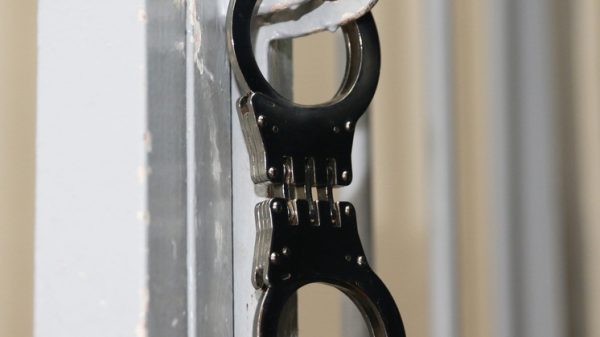 The BBC and ITV currently share the rights to the Six Nations Cup. Photo: BBC Sport
The BBC and ITV currently share the rights to the Six Nations Cup. Photo: BBC Sport
The BBC's outgoing director of sport has warned it is at risk The fight to save the Six Nations is fueling fears the tournament will not remain entirely free.
Barbara Slater told MPs it was becoming increasingly difficult for the corporation to save rights to major sporting events. , blaming a 30 percent decline in its revenue over the past decade and a doubling in the cost of broadcast contracts.
Slater's ITV colleague Niall Sloane admitted his own channel could face a fight to retain exclusive rights to the Rugby World Cup amid concerns it may also not remain entirely on terrestrial television.
Last Two Later Telegraph Sport has been revealing for months how both the Six Nations and the World Cup could end up, at least in part, behind paywalls, with neither fully protected by law for free-to-air broadcasting.
And two executives responsible for making sure the competition reaches the widest possible audience have now sounded the alarm about their future while speaking to Culture, Media & Sports Committee
The BBC and ITV were forced to merge eight years ago to keep the Six Nations free from the influence of pay-TV and asked about the prospect of losing it, Slater said: “To be clear, we need a well-funded BBC if we can continue to provide sports rights.
“Sports rights in the UK have more than doubled in the last decade. BBC revenues fell 30 percent in real terms.»
Slater, who announced in September that she would step down in the first half of next year, added: “When we knock on the door for the rights we want, we have to bring a package around empowerment, it's about using all our platforms. . The truth is that we likely won't be the highest bidder, and how to balance reach and revenue will be up to individual governing bodies.
“And I think that’s why we have so many partnerships. Indeed, we partner with Six Nations and ITV, who actually own the lion's share. And I think we cover Wales and Scotland because of the importance of those countries to the BBC.
Six Nations, like everything else, we'll have to assess availability at the time. Because it's very difficult for the BBC, with this revenue trajectory, to continue to afford everything we have. But this is not a decision that is being made at the moment.”
Sloan said: “I don't think we've ever done a deal where there wasn't some speculation and probably reasonable speculation that it might go partly or entirely to a payment processor. This is less true for the Rugby World Cup because we only did two deals during my time at ITV. I think they understand that if you want to grow the game, something like the Rugby World Cup needs to be broadcast for free, but there's no guarantee of that.»
He added of the Six Nations: “We would like to make a bid for this property. It just depends on whether they want to sell it to pay TV. We discussed this earlier. This was discussed a few months ago. But this issue is always discussed when negotiations appear on the horizon. So we weren't talking seriously. But in the new year we will take part in both tournaments: the Six Nations and the Rugby World Cup. But they have been great competition for us in the past and we hope to continue to do so.”
Key clues about the future of Six Nations TV — and why it could be behind a paywall
For clues about the prospects of the Six Nations remaining entirely free-to-air, look no further than the competition's CEO selection following a change in leadership earlier this year.
On the one hand, in Tom Harrison's latest job, he brought back live cricket matches in England to terrestrial television for the first time since 2005. /p>
So, although the former England & While the Wales CEO's appointment bodes well for ensuring the Six Nations doesn't disappear behind a paywall entirely, don't be surprised if he ends up being the man to loosen his grip on terrestrial TV at rugby's biggest and most watched annual competition.
 During his time at the ECB, Tom Harrison brought live international cricket back to terrestrial television, but also strengthened the stranglehold of pay-TV. rest Photo: JUSTIN TULLIS/AFP via Getty Images
During his time at the ECB, Tom Harrison brought live international cricket back to terrestrial television, but also strengthened the stranglehold of pay-TV. rest Photo: JUSTIN TULLIS/AFP via Getty Images
The same can be said for Alan Gilpin, who was appointed chief executive of World Rugby 2.5 years ago and who, like Harrison, will soon launch the first auction of the rights to broadcast his flagship tournament, the Rugby World Cup, since he took charge.< /p>
Unlike Harrison, who has not spoken publicly about the Six Nations rights that will be implemented from 2025, Gilpin made it clear that there is no guarantee that the World Cup will remain completely free to stream after this year's tournament.
p>
In an exclusive interview with Telegraph Sport during the group stages of the 2023 French Championship, Gilpin revealed plans for a radical change in how the event is staged and broadcast.
«The starting point will always be: 'Can we make this fantastic competition — in the case of the men's and women's World Cups — accessible to as wide an audience as possible?' he said.
“The secondary consideration is, 'Can we do this in a way that generates the revenue we need to continue to invest in the sport?' So, like any sports event owner, he finds that balance — and this is where the balance needs to be found — in different markets.»
For Harrison, balancing the equation could prove to be an even bigger headache after Telegraph Sport revealed last month that the creation of a new global world league had begun. rights to the Six Nations and even the Premier League and Champions Cup will be sold alongside it.
A decision on whether to merge the competition (if any) is still some way off, but the end of the Six Nations as a separate live offering could see most of it, including England matches, moved from free-to-air television.
It is expected to seek a permanent terrestrial presence given international rugby's huge audience, but aggregation would jeopardize the rights-sharing deal the BBC and ITV struck in 2015 to avoid losing the tournament to pay-TV.
The loss of any of the Six Nations from terrestrial television could lead to a backlash, the strength of which could depend on how many Nations Championship games — especially the new «grand final» between the northern and southern hemispheres — are broadcast free of charge.< /p>
Coincidentally, on the same day that news of the potential rights tie broke, a parliamentary select committee publicly stated that the Six Nations should remain free to air.
Perhaps unsurprisingly, the call comes from MPs on the Welsh Affairs Committee after the UK minister previously said games in Wales could be retained for ground coverage by law if the principality's parliament formally requests it.
 The Senedd may try to list Wales' Six Nations Games entitled «Crown Jewels»; if there is an attempt to attract them to paywalled subscription television. Photo: Stu Forster/Getty Images
The Senedd may try to list Wales' Six Nations Games entitled «Crown Jewels»; if there is an attempt to attract them to paywalled subscription television. Photo: Stu Forster/Getty Images
Currently, the only rugby union match that must be broadcast free-to-air under so-called “crown jewel” legislation is the World Cup final. The Sports Select Committee previously had a proposal to add all six nations to the list rejected by the government.
This is the same committee that heard perhaps the bleakest predictions about the future of free-to-air broadcasting. competition from the BBC's retiring director of sport, Barbara Slater. Her ITV colleague Niall Sloane said talks on extending deals for both competitions would begin «in earnest» in the new year.
Which neither he nor Slater did, and neither MPs heard their evidence. , there was a call for both events to be preserved by law for free coverage.
This is despite both leaders passionately campaigning for a 21st century Crown Jewels Act to cover digital rights.
Instead, Slater and Sloan extolled the virtues of precisely the kind of partnership between terrestrial and pay-TV broadcasters that Harrison helped create.


























































Свежие комментарии